 There’s little doubt that football is one of the most popular sports bets in sport in the world. A mere sideways glance at some of the bigger bookmakers and it is evident how much attention the sport gets from the industry in general. There are countless markets to bet on from a huge range of countries and every bet type imaginable. Football carries a huge global following.
There’s little doubt that football is one of the most popular sports bets in sport in the world. A mere sideways glance at some of the bigger bookmakers and it is evident how much attention the sport gets from the industry in general. There are countless markets to bet on from a huge range of countries and every bet type imaginable. Football carries a huge global following.
One of the reasons why football is so popular for a flutter is that pretty much every country in the world plays the sport at some level, and whilst some countries run higher profile leagues than others, even grassroots betting is not uncommon from some of the more prestigious bookmakers.
This article will indicate some of the bookmakers that are most worthy of your time when placing football bets, as well as looking at a number of ways in which you can improve these bets. We’ve gathered our information from data collected over dozens of bookmakers, listing those that we think will provide the best football betting opportunities.
- In this Article:
- Bookmakers
- How to Bet
- Betting Markets
- Betting Rules
Best Football Betting Sites
#1 – BetVictor
BetVictor is another great addition to our football betting portfolio and these guys, probably better than anyone else in the industry, constantly churn out the best prices when it comes to football betting. In fact, they have won countless awards for consistently being best priced in the industry, so if it’s value you are looking for, then you need to look no further really.
Again, these guys are another site that offers a staggering number of markets from leagues around the world. Pretty much all of Europe’s bigger leagues are there, along with a range from Asia, Africa and the Americas.
We found the site to be particularly impressive when major tournaments were taking placing and they often dedicated sections to just betting markets from said tournaments. On top of that it wouldn’t be uncommon to find things like match highlight, betting tips, previews, results, facts and a number of special betting markets for these tournaments, as well.
#2 – Coral
Coral are a UK based bookmaker but are still one of the more comprehensive when it comes to football betting. Whilst the top two bookmakers easily have football as their number 1 sport, Coral probably split it a little more evenly with their horse racing coverage. Having said that, they don’t lose any of the depth that a top bookmaker should for betting!
Coral have recently included a live streaming channel to their bookmaker and include a number of football matches to accompany it. The coverage is relatively good and includes games from a number of leagues from around Europe and Asia, mainly.
The site also includes a number of football betting features such as statistics, live scores and their coral radio station. Each has a big football following so the site allows you to perform your research and also place bets, which is a definite positive in our book.
#3 – Betfred
If you are looking for football related bonuses, then you won’t need to look too much further than Betfred. The site has a huge football following and it’s love of kicking of a bonus or promotion often goes hand in hand with football.
The biggest pull to the site has to be from the betting coupons that Betfred have devised and as a result, many other bookmakers have shamelessly copied. Their biggest success is probably in their Goals Galore coupon where you need to select games where you think both teams will score at any time. It’s a bit of change up from the traditional accumulator bet, but instead of choosing teams to win, it’s goals that you need to be looking out for.
There are a number of other bets similar to this that they have devised that include anytime scorer, beat the clock and 1-A-Piece. Each differ slightly in the market they target, but are all a modern twist on the accumulator bet.
#4 – Ladbrokes
Ladbrokes may be our 5th ranked football betting site, but they aren’t a million miles from any of the four they are chasing. As you can imagine, football plays a huge part on the site and their newly designed bookmaker allows for a much more compressive football betting HUB than previously.
Over the years, Ladbrokes have massively increased their football betting exposure to include a huge range of leagues and markets from all over the world. The European leagues still get the majority of the coverage, but you shouldn’t be surprised to see matches from outside of Europe including Africa, Asia and the Americas.
Their stats centre is massively cantered around football betting with everything from form, squad information, statistics, league position, analysis and live betting all on offer from here.
How to Bet on Football
 As you will probably be aware, betting on football is one of the more accessible betting options at an online bookie, if only for availability. But for those of you who are completely new to the sport, there are a number of key elements which we think you should consider before placing your first bet.
As you will probably be aware, betting on football is one of the more accessible betting options at an online bookie, if only for availability. But for those of you who are completely new to the sport, there are a number of key elements which we think you should consider before placing your first bet.
Whilst this section is aimed at those with less experience in this field, even seasoned bettors could brush up on their skills by reading through and reminding themselves of one or two basics.
What many people forget about football betting is that because there are so many games to bet on – especially from the bookmakers listed above – there is a much higher chance of punters making simple betting mistakes. We will try to show you which markets make good targets and cover some vital considerations that every bettor should mull over.
Betting Markets

Betting on football is very simple. Once you have selected a betting site all you need to do is choose a market, choose a bet, and set the wager. Most betting sites will show a forecast of how much you will win relative to your stake so you can get an idea of your exact returns before you commit.
If you are new to betting on football then diving into a big betting site and seeing over 100 markets on a single game could well be a little intimidating, if not totally bewildering. There are so many betting opportunities it can be difficult to keep track. Below we have listed some of the more popular betting markets for football along with a simple explanation.
- Full Time Result – The full time market is the most popular and the most simple. You just have to choose the result of the match, not the score. This translates as either a home win, away win, or draw. This market is sometimes called the outright winner.
- Double Chance – This one allows you to take two results from the match. This might be a home win and draw, away win and draw, or home or away win.
- Correct Score – This market will require you to choose the correct score for the match in question. The result must match your prediction exactly in order to win the bet, and any other score will mean you lose.
- Half Time / Full Time – Here you need to choose the correct outcome at both half time and full time to win the bet. So you may choose a home win at half time and draw by full time. There are 9 different scenarios in total.
- Handicap Betting – Handicap betting gives one team a virtual head start over their opponent by offering them upwards of one goal. For example, one team may begin with a 1 goal head start over their opponents and at the end of the game, this goal will be added to the score in reality to get the handicapped score.
- Asian Handicap – The Asian Handicap is similar to the example above, except they display the scores in decimal to eliminate the draw as a result. For example, a team may be given a handicap of -0.5 goals meaning that this amount will be taken from their actual score at full time.
- Scorecast – The scorecast is a popular market asking punters to choose both the correct score at full time and which player will bag the first goal. It often yields large pay-outs due to it effectively being a double bet and a tough one to call at that. Variations of this include the anytime scorecast (correct score and one player to score at any time) and 1st half/ 2nd half scorecast (the original bet but it only applies to the respective half of the match).
- Draw No Bet – This market will take the draw result out of the equation when betting. If the game does finish in a draw then the bet is counted as a ‘push’ meaning that you will get your stake back in return.
- Number of Corners – Betting on the total number of corners in a match. More often than not you will get 3 brackets to pick from; a less than x number, between x and x, and greater than x.
- Sending Off – Here you just select if there will be a red card in the match – usually, a straightforward yes or no is sufficient.
- Over / Under Goals Market – A favourite for many punters is selecting whether there will be over or under a certain number of goals during the match. Usually between O/U 1.5, O/U 2.5, O/U 3.5, and O/U 4.5. The .5 means the bet will always be settled as it is impossible for there to be 1.5 goals, for example, so a bet for over 1.5 goals requires at least 2 goals to be scored.
- Next Goal – This market will turn live at the start of the match and you can bet on which team you think will score the next goal.
- Clean Sheet – You can choose which team will keep a clean sheet in the match.
- Goalscorer Markets – Choose between the first goalscorer of the game, a player to score anytime in the game or a player to score the last goal of the game.
- Goals Galore – Goals Galore is a relatively new market that involves selecting games in which you think both teams will score. Only certain games are eligible for this market, and it is only available as an accumulator of three or more matches. The payout is relative to the number of matches selected.
Match Betting
So we have covered the basics and you should have some idea of the markets that tend to be available. If you still have questions that’s ok, we are going to go into more detail on some of the most popular bets below.
Match Odds (Win/Draw/Win)

The match odds for each game of football will likely be the most popular, as they are generally the easiest to understand and to form a strong opinion on – “West Brom away to United? No way mate.”
The concept is very simple in that you either choose a home win, a draw, or an away win. You then place your bet and if the result comes in you can collect your winnings. The best way to take advantage of this market is by doing your research on home and away form for each team. It’s vital that your research is targeted to the teams relevant home or away form rather than their overall form, as this can often lead to slightly skewed results for both.
For example, you may be wanting to back a team to win away from home based on the fact that they have won 3, drawn 2 and lost 2 of their last 6 games. This seems like pretty reasonable form and it’s likely the odds for that team to win will be favourable and offer up some value. Digging a little deeper, however, you notice that the teams 2 losses and 1 of the draws came away from home, making their away record very poor. Looking a little further back into the season, you notice a trend that they are particularly poor away from home, but very strong on their own turf, throwing a bit of curve ball in terms of which way to bet.
It’s for this very reason that we need to target research on the W-D-W market to take into account when and where teams have picked up points.
Correct Score
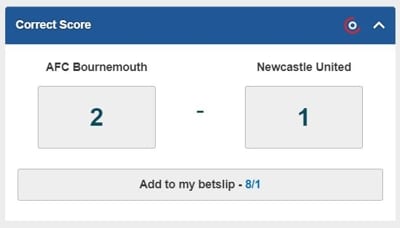 The correct score market couldn’t be simpler really, you just need to predict the exact score for the game at full time. Easy to understand, less easy to put into practice. This market tends to get its popularity from punters who are looking for slightly longer bets than say the W-D-W for example; the more attractive odds reflect the likelihood of the punter winning the bet.
The correct score market couldn’t be simpler really, you just need to predict the exact score for the game at full time. Easy to understand, less easy to put into practice. This market tends to get its popularity from punters who are looking for slightly longer bets than say the W-D-W for example; the more attractive odds reflect the likelihood of the punter winning the bet.
The correct score market is a tough one to predict, but we have a couple of pointers for you to consider. The first is to try to avoid the win to nil bets, so scores like 1-0, 2-0, 3-0 etc. Our reasoning here is that it’s going to take just one goal from the other team to completely scupper your bet. If for example, you picked a score line such as 2-1, 3-1, 1-1 then a goal from either team is always going to keep you in the running.
Using the above strategy works great with cash out betting. If you are unfamiliar with cash out betting then it’s basically where you can settle your bet with the bookmaker before the final result comes in, securing your payout and any net win or loss that comes from that. Albeit at adjusted odds.
Correct score betting works well because the market will react to any goal that has been scored. If you bet on a score line that needs both teams to score then as soon as one team scores, regardless of the result you have selected, the market will change and increase the likelihood that your result will come in, thus altering the odds in your favour if you were going to cash out.
Now, what you need to understand is that this is a pretty general rule and there will certainly be times where if the wrong team scores it will hinder your bet – late goals for the team you bet against can be a killer – but if you are looking to wager on the correct score market, then this is going to be a great feature to use in tandem.
First, Last & Anytime Scorer
The goalscorer markets are also fairly self-explanatory. For each bet you will need to predict the player that scores first, last, or at any time in that match. It’s worth noting that with most bookmakers, own goals do not count towards these betting markets, so if an own goal was scored and the player you backed for the first goalscorer then went on to get the second goal, your bet would win as the own goal would be removed for betting purposes.
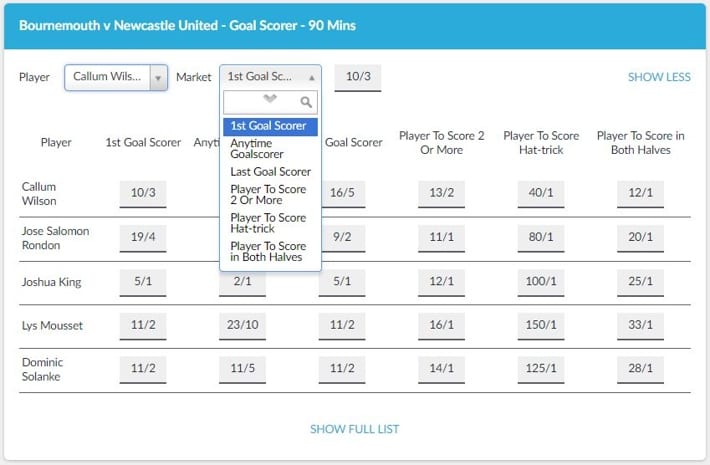
There are two fairly obvious categories of player that you need to be targeting for these types of bets. The first is the clubs most potent attacking threat, often their top scorer. By process of elimination, due to the goals scored previously by these star players, these guys are going to be the most obvious choice for all of these bets. They will likely carry the lowest odds for these types of bets too, however, which is why you may want to look at our second category instead.
The team’s set-piece taker. These are players that are going to be taking penalties and direct free kicks. Sometimes you will find that these are the same players as the first category, but not always. For example, defender, Leighton Baines at Everton took all penalties and free kicks for them, making him a great shout for these types of bets, especially anytime goalscorer, but he wasn’t the clubs top goalscorer.
As a final pointer for these types of bets, make an effort to look out for bookmakers who offer incentives for these markets. For example, one bookie ran an offer that doubled and trebled your odds respectively if a successful bet on a first goalscorer then went on to score a second or a third.
Scorecast & Wincast
Scorecast and wincast bets tie in two separate betting markets to combine one bet. The scorecast is where you need to select both the correct full time score and the player who will score the first goal. The wincast is a little easier in that you need to select the first goalscorer along with the correct match result, but not the exact score.
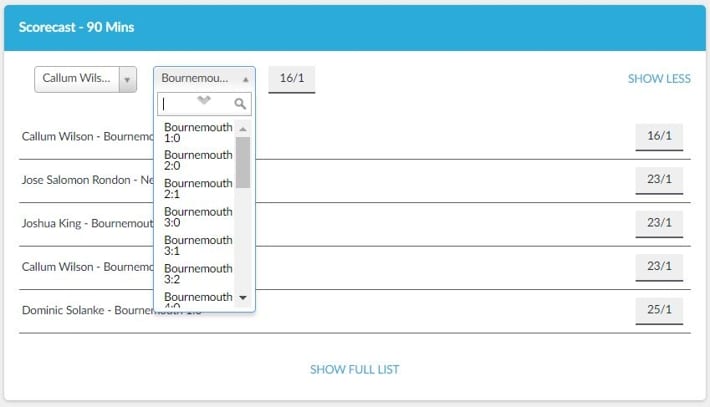
These types of bets are tricky to call but can yield some of the biggest single bet odds in football, making them both popular with punters. For both bets you really need to target the main goal threat for a game, taking into account the brief strategy outlined in the section above.
Scorecast betting is going to be much tougher than wincast betting because there could be any number of different scores. Again, apply the strategy that we used in the ‘Correct Score’ section above to this market and you will give yourself the best chance. For wincast betting apply the strategy mentioned in the ‘Match Odds’ section, along with the first goalscorer information.
Both Teams to Score – Yes/No
 The Both Teams to Score (BTTS) market has arguably been the fastest growing betting market in football over the last 5 years or so. You need to predict whether both teams will score during the match, or alternatively whether you think that both teams won’t score during the match. For example, backing BTTS ‘Yes’ could include results like 1-1, 2-1, 2-3, 7-1 etc – the actual result is irrelevent, just as long as both teams score at some point. BTTS No bets might include results like 2-0, 0-0, 0-1, 8-0 etc – so a goalless draw or any game where at least one of the teams doesn’t manage to find the back of the net.
The Both Teams to Score (BTTS) market has arguably been the fastest growing betting market in football over the last 5 years or so. You need to predict whether both teams will score during the match, or alternatively whether you think that both teams won’t score during the match. For example, backing BTTS ‘Yes’ could include results like 1-1, 2-1, 2-3, 7-1 etc – the actual result is irrelevent, just as long as both teams score at some point. BTTS No bets might include results like 2-0, 0-0, 0-1, 8-0 etc – so a goalless draw or any game where at least one of the teams doesn’t manage to find the back of the net.
When choosing BTTS Yes and No bets, the strategy you will employ or the information that you need to look out for is actually contrasting. For BTTS Yes bets you’re going to be looking for two teams that are good going forward and ideally also leaky at the back. Form doesn’t really matter with these bets, we are simply taking into account both teams offenses and defences and their goal scoring/conceding history.
For BTTS No bets we are looking for two teams with really strong defences and who don’t concede many goals. Ideally, we would look at teams that are a little shy in front of goal as well, but defence is the most important aspect initially.
Over/Under
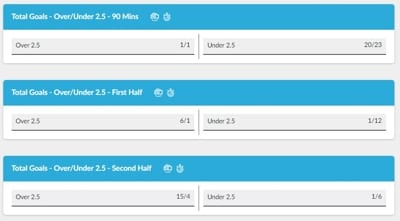 The over/under bet reflects how many goals will be scored in a match. The number will be a cumulative one, meaning that both teams’ goals will contribute to the overall outcome. For example, a typical over bet would be +2.5 goals, meaning that for the bet to come in, 3 or more goals would need to be scored in that game. An under bet of -2.5 would mean that 2 or less goals would need to be scored for a successful bet. It doesn’t matter where these goals come from.
The over/under bet reflects how many goals will be scored in a match. The number will be a cumulative one, meaning that both teams’ goals will contribute to the overall outcome. For example, a typical over bet would be +2.5 goals, meaning that for the bet to come in, 3 or more goals would need to be scored in that game. An under bet of -2.5 would mean that 2 or less goals would need to be scored for a successful bet. It doesn’t matter where these goals come from.
These two bets can actually follow a similar strategy base to that of BTTS betting. When betting on a certain number of goals for an over bet we need to look at strong attacking teams and ideally a poor defensive record. When betting on the under market we need to look for two teams that are both strong defensively and ideally, shy in front of goal.
Handicap Betting

Handicap betting is another market that is growing in popularity. The concept gives one team a theoretical advantage or disadvantage purely for betting purposes. This is usually the addition or subtraction of goals to form a handicap result.
An example would be backing a team at +2 goals in a match, so at full time 2 goals would be added to their score to form the adjusted handicap score. Your bet would then be successful if the handicap would make that team a winner. So, if the result was an actually a 1-2 loss for your team, but you backed them at +2 goals, then the adjusted score line would be 3-2, meaning your bet would win.
It’s worth noting that if the adjusted handicap score results in a draw, then the bet would be a ‘push’, meaning you would get your stake back with most bookmakers.
These types of bets are best utilised when betting on teams who are strong favourites. For example, Chelsea are priced at 2/5 to beat Sunderland, but the odds for Chelsea at -2 goals would increase to even money, which is not a bad price in a game where you would expect Chelsea to win and to win well.
Tournament Betting
Tournament bets work in a similar way to match bets, but are based around the events and outcomes of a specific tournament, rather then a single match.
Outright Winner
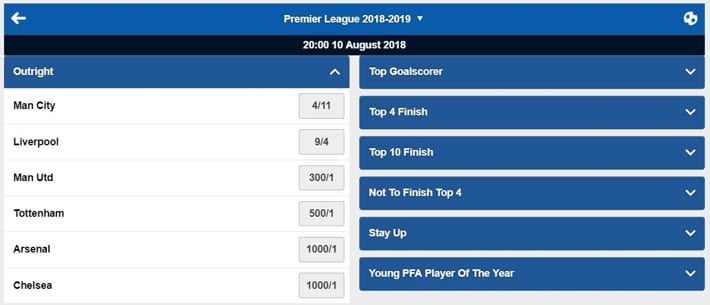
The outright winner market will require you to choose who you think will win the tournament outright. It’s probably the most simple and most popular betting market of its kind, with a huge number of bets being wagered on this particular market.
Picking the outright winner for any tournament is usually a tricky prospect, despite the simplicity of the bet itself. Such is the competitiveness and unpredictability of football, one poor game or even a brief lapse in concentration from your team could cost you big time.
One of the most sensible things you can do as a punter is to look at the draw for each tournament and try to predict how each team might fair and who they might come up against in later rounds. For example, in Euro 2016 Belgium was able to get through to the knockout stages and found themselves on one side of the draw which looked very weak compared to the opposite side. This meant that while they weren’t one of the favourites pre-tournament, their chances of getting to the final were now much higher because they would avoid all of the strongest teams along the way. Once in that final, whilst definitely the underdogs to actually win it, they would at least have the chance, and football is a funny old game…
This is essentially how to go about finding value inthese types of bets.
To Reach the Final
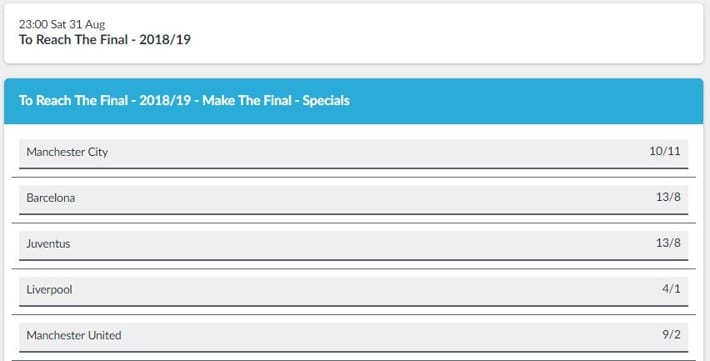
A bet placed on a team to reach the final means they need to do just that, reach the final. The team doesn’t need to win the final, just getting there will be enough for the punter to win a bet like this.
A similar strategy to the outright winner market can be applied for these types of bets in terms of studying the draw – you could even look at the Belgium example above as it still apllies. With this bet, you need to look at group stages as well though, because from there you will be able to plan the route that they may take with much more confidence.
Group Winner
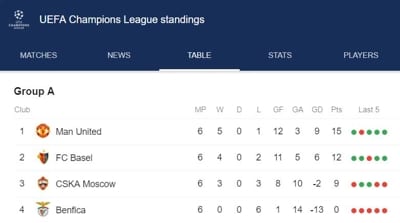 For this market, you need to select which team you think will win a particular group. Remember that if points are tied then it will either go down to goal difference or even head to head games against the second place team in some events, with a group winner being named accordingly.
For this market, you need to select which team you think will win a particular group. Remember that if points are tied then it will either go down to goal difference or even head to head games against the second place team in some events, with a group winner being named accordingly.
The group winner market won’t usually yield an awful lot of value in most events, due to the fact that there is often a clear favourite and only a few teams per group to choose from. You’d be surprised at the number of times the pre-tournament group favourite doesn’t actually top the group, though, falling foul of just one bad result.
It’s going to be very tough to justify not backing the favourite though, especially with only a couple of games to be played and over a shortened period of time. Tournament formats often work differently from most league formats.
Top Goalscorer
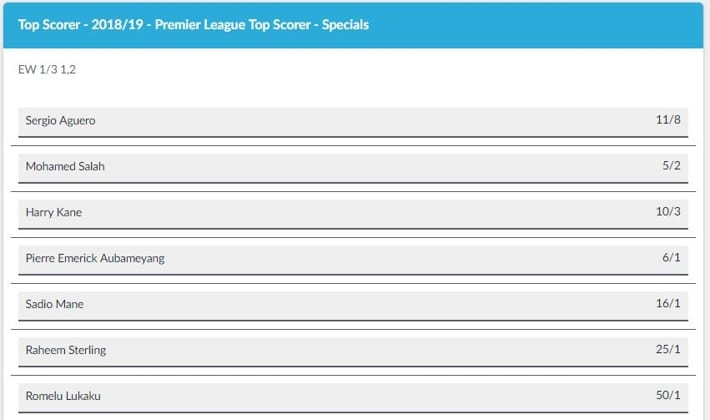
The top goalscorer of a tournament will be the player with the most goals throughout the event. If two or more players are tied for this accolade then it usually goes down to the number of assists that player has made as a tiebreaker.
Form is often a great indicator for this market and you want to be looking at players who have either been scoring regularly for their team recently or have a good record in that specific tournament. A nice little tip is to look at teams that you think will go far in the tournament, as the increased number of games that they play will give players a massive advantage. So a world-class goal machine from Trinidad and Tobago may not be a good shout for top scorer in the World Cup.
As another example, Cristiano Ronaldo was one of the favourites for top goalscorer in Euro 2016, but Portugal had a relatively poor team for the year and weren’t expected to get past the quarter final stage. Compare that with someone like Olivier Giroud of France who is a longer price than Ronaldo to win top goalscorer, but he’s playing in a much stronger team that is widely tipped to win the whole tournament. Giroud is not only likely to play more games than Ronaldo, but because of the strength of the team, he is likely going to get more chances to score than Ronaldo, making him a much more attractive bet.
Football Betting Rules
There are a plethora of rules when betting on football. Whilst the ones we have listed below are generic responses which most bookmakers will adhere to, each bookmaker may have their own interpretation, so if you are unsure then it’s always best to check with them first.
Full Time Result
 The main thing to take into account when betting on the full-time result is that bets are inclusive of injury time in both the first half and second half but generally won’t include extra time or penalty shoot outs should the game come to that.
The main thing to take into account when betting on the full-time result is that bets are inclusive of injury time in both the first half and second half but generally won’t include extra time or penalty shoot outs should the game come to that.
For a bet to include these extra periods you will need to look at the ‘team to progress’ market instead.
This means that if you placed a wager on a full time score of 2-1, and the score was 1-1 at the end of 90 minutes plus injury time, even if the team went on to win 2-1 during extra time your bet would lose.
Obviously, this will only be an issue in certain competitions since UK league games at least don’t go into extra time, but don’t let it slip your mind.
Postponed & Abandoned Matches
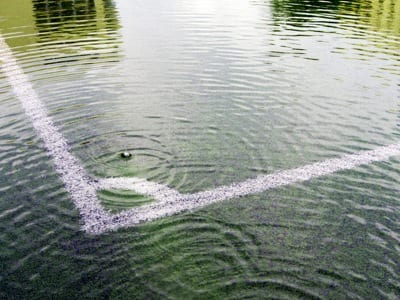 If a match has been postponed then all bets on that game will become null and void unless the fixture is re-arranged and replayed within 7 days, in which case the bets will simply roll over to that game. For example, a game may get postponed and move from Saturday to a Sunday for TV purposes, so bets will simply roll over.
If a match has been postponed then all bets on that game will become null and void unless the fixture is re-arranged and replayed within 7 days, in which case the bets will simply roll over to that game. For example, a game may get postponed and move from Saturday to a Sunday for TV purposes, so bets will simply roll over.
Games that are abandoned after they have already kicked off work a little differently. If the bet that you have placed has already been settled then your bet will stand and any winnings will still be paid out. If the market has not been settled before the game is abandoned then these bets will be void and the stake returned to the punter.
For example, if you back a player to score the first goal in a match and a goal is scored before the game gets abandoned, then this market will be deemed as settled. However, if you wager on the outright result for that match, then obviously if the game gets abandoned this will not be settled.
Dead Heats
Dead heat bets are uncommon in football but can occur in a number of tournament bets such as top goalscorer for example. A dead heat is declared when two or more outcomes finish tied in an event that can’t be split. So, if two or more players have the same number of total goals in a tournament, they might share the top goal scorer prize. If this happens and a dead heat is applied, your stake will be divided by the number of tied winners and then your odds paid out accordingly.
So, let’s say you have £10 on top goalscorer at the World Cup where 3 players all finish tied for first. We would then divide our original stake by 3 (the number of players) to get our adjusted stake of £3.33. Let’s say original odds on our bet was 10/1, this does not change in dead heat rules so our winnings would be adjusted to £33.33 as a result – 10 x £3.33 = £33.33.
Own Goals
 There are situations when own goals will count towards your bets and times they will not. For example, if an own goal is scored in a Both Teams To Score bet then this would count towards the overall result of that bet. However, an own goal would not apply to the first goalscorer bet, with that bet continuing until a player had scored outright.
There are situations when own goals will count towards your bets and times they will not. For example, if an own goal is scored in a Both Teams To Score bet then this would count towards the overall result of that bet. However, an own goal would not apply to the first goalscorer bet, with that bet continuing until a player had scored outright.
Some examples of markets that do include own goals are Correct Score, Scorecast, Wincast, and Timecast. Examples of markets that do not include own goals are First/Last Goalscorer, Team First/Last Goalscorer, Player to Score Anytime, and Top Goalscorer.
Each way betting
Each way betting can be used on a variety of football betting markets. The concept of an each way bet is pretty simple in that your bet is actually split into two sections; the first being on the result to win, and the second being on the result to finish within a certain number of places.
For example, you can use each way betting on the first goalscorer market for any match. First, half of your bet will be placed on the player to score the first goal of that match, and the other half will be placed on your player to score either the first or the second goal of the match. Remember, to win the full bet your selection will need to score first. If they score second, then your first bet will lose and your second bet will lose. If they score third, later or not at all of your bets will lose.
Just to be clear, your stake for an each way bet is actually doubled because you are staking that amount ‘each way’, so a £10 each way bet would cost £20.
European Football Leagues
Europe is the top dog when it comes to the strength of their leagues. The likes of England, Spain, Italy, Germany and France are able to attract the best players in the world, mainly because of the financial rewards and the potential to win big trophies.
We have drawn together a list of the best leagues from across Europe, of which you can see below.
English Premier League (UK)
 The Premier League has been running since 1992, and is actually one of the youngest top-flight leagues in Europe. The formation of the Premier League came about off the back of the decision for clubs to break away from the football league and take advantage of lucrative television deals that were on the table.
The Premier League has been running since 1992, and is actually one of the youngest top-flight leagues in Europe. The formation of the Premier League came about off the back of the decision for clubs to break away from the football league and take advantage of lucrative television deals that were on the table.
Since 1992 the league has thrived and now generates over £2.2bn per year in television rights alone. The success that the league has had is evidenced by the fact that it is the most watched football league in the world, with over 200 countries broadcasting matches each season and a global audience of 4.7bn. The Premier League doesn’t just attract a large following from armchair supporters, though, the average attendance of 36,000 is beaten only by the Bundesliga, with most of the stadiums hitting full capacity for each game.
The format of the league is made up of 38 teams, with games starting in August and running through until May. Each team will play each other both home and away throughout the season, with 3 points being awarded for a win, 1 for a draw and zero for a loss. The team with the most points at the end of the season will be crowned the winners and the three lowest ranked teams will be relegated to the Championship.
The league has often been criticised in the past for favouring teams with huge financial advantages over the rest, widely known as ‘the big four’, made up of Chelsea, Manchester United, Arsenal and Manchester City. Up until the 2015/16 season, only one team (Blackburn Rovers 1994/5 season) had won the Premier League outside of the ‘big four’.
That all changed in the 2015/16 season when huge 5000/1 outsiders Leicester City rocked the footballing world to go on and win the league. Just 12 months previously, Leicester had narrowly avoided relegation to remain in the Premiership, making their feat all that more impressive. This achievement from Leicester has supported claims that the Premier League is the most exciting league in the world.
Bundesliga (Germany)
 The Bundesliga is probably one of the most improved leagues over the last decade or so but has been about since 1963. It’s also the most supported league in the world in terms of attendance, with an average of 43,000 fans turning up for each game. One of the main reasons for this is the competitive pricing structure for both day tickets and season tickets, making games much more accessible for everyday supporters compared with some countries that price out lower earning fans.
The Bundesliga is probably one of the most improved leagues over the last decade or so but has been about since 1963. It’s also the most supported league in the world in terms of attendance, with an average of 43,000 fans turning up for each game. One of the main reasons for this is the competitive pricing structure for both day tickets and season tickets, making games much more accessible for everyday supporters compared with some countries that price out lower earning fans.
As a business, the league generates around 1.7bn Euro through a mixture of match-day revenue, sponsorship, and broadcasting rights, but the league also has the lowest percentage of revenue invested in player wages out of all the top European leagues, sitting at just over 50%.
There are 18 teams that make up the Bundesliga each season, which kicks off in August and finishes in May. Bayern Munich are by far the most decorated club in the league winning 24 separate Bundesliga titles, which is a staggering 19 more than both Dortmund and Borussia Monchengladbach, both with 5.
Ligue 1 (France)
 Ligue 1 is the highlight of the French domestic football season and also one of the oldest top-flight leagues in Europe, being established in 1932. The league includes 20 teams and is seen as one of the fastest emerging major leagues in the world. This is mainly down to the increase in foreign ownership throughout the league, thus bringing in huge sums of money to attract some of the worlds finest players.
Ligue 1 is the highlight of the French domestic football season and also one of the oldest top-flight leagues in Europe, being established in 1932. The league includes 20 teams and is seen as one of the fastest emerging major leagues in the world. This is mainly down to the increase in foreign ownership throughout the league, thus bringing in huge sums of money to attract some of the worlds finest players.
Clubs like PSG and Monaco have benefitted greatly from these takeovers, but that’s arguably had a detrimental effect on the rest of the league, widening the gap between those at the top to those at the bottom, and even beginning to separate from the middle of the league. This was highlighted in the 2015/16 season when PSG were crowned champions finishing a massive 31 points clear of Lyon in second place.
Ligue 1, like so many of the major leagues across Europe, kicks off in August and finishes in May. Throughout December all teams have a 24 day break covering Christmas and the New Year, and most league matches take place on a Saturday or Sunday, with the odd mid-week game as well. Each team in the league will play each over twice throughout the league, with the top 2 teams gaining automatic Champions League places, 3rd place getting a Champions League qualifying round spot, 4th a Europa League spot, and the 3 lowest ranked teams are related into Ligue 2.
The most successful team in the history of Ligue 1 is Saint Etienne who have won the tournament on 10 different occasions. But PSG won the league 4 times in a row from 2012/13 – 2015/16, and are widely expected to carry on this trend to add to their current tally of 7 titles, and in turn, overtake Saint Etienne, who have not finished 1st since the early ’80s.
La Liga (Spain)
 La Primera Division; but to most it’s more commonly known as La Liga. It is the biggest league in Spain and the pinnacle of their domestic game. The league was founded in 1929 and since 1997 has included 20 of the best teams from across the country. The league is widely regarded as the best in Europe in terms of the quality of players and teams that are competing. One of the main reasons for this is that more teams from La Liga have won the Champions League on 18 separate occasions, doubling that of the next best, Serie A, with 9.
La Primera Division; but to most it’s more commonly known as La Liga. It is the biggest league in Spain and the pinnacle of their domestic game. The league was founded in 1929 and since 1997 has included 20 of the best teams from across the country. The league is widely regarded as the best in Europe in terms of the quality of players and teams that are competing. One of the main reasons for this is that more teams from La Liga have won the Champions League on 18 separate occasions, doubling that of the next best, Serie A, with 9.
For many years both Barcelona and Real Madrid were the top two teams in the league, but in more recent times Atletico Madrid has joined them at the summit creating a ‘big three’. Since the league started in 1929 only 6 other teams outside the big three have won the league, whereas Barcelona, Real Madrid and, Atletico Madrid have been crowned champions on 76 occasions between them; only 19 titles have gone elsewhere.
Even though La Liga is ranked number one in terms of quality, the league only see’s an average game attendance of just over 24,000, which is just the fourth highest for any professional football league. The season starts in August and runs through until May, with each of the 20 teams playing against each other both at home and away. Spain also take a Christmas break from the back end of December to early January.
Serie A (Italy)
 Serie A is the oldest of the top-flight professional leagues across Europe officially starting in 1898, but the structure as we know it today didn’t come into effect until 1929, playing out as a round robin league format. Serie A is ranked as the fourth strongest professional league, behind that of La Liga, Serie A, and Bundesliga, but is widely regarded as one of the toughest, mainly down to the style of play that many teams in the league adopt.
Serie A is the oldest of the top-flight professional leagues across Europe officially starting in 1898, but the structure as we know it today didn’t come into effect until 1929, playing out as a round robin league format. Serie A is ranked as the fourth strongest professional league, behind that of La Liga, Serie A, and Bundesliga, but is widely regarded as one of the toughest, mainly down to the style of play that many teams in the league adopt.
Similarly to other European leagues, Serie A is made up of three major teams in the form of Juventus, AC Milan, and Inter Milan. As you would expect, the rivalry between the two Milan based clubs is fierce to say the least, but the league also brings out several other huge rivalries, including that of Roma and Lazio.
Since 2004 the league has included 20 teams, an increase from 18 teams previously. Again, games are played out between August and May, with each of the teams playing each other twice in the league format. The team with the most points at the end of the season is crowned the winner and teams finishing on the same number of points will go down to goal difference.
Major Tournaments
Champions League
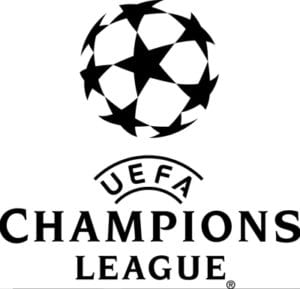 The Champions League is the biggest and most prestigious club tournament in the world. It brings together the best performing teams from the previous season across a number of European leagues. The number of representatives from each country will vary depending on UEFA ranking points and can vary from 1 to a maximum of 4 teams from one league.
The Champions League is the biggest and most prestigious club tournament in the world. It brings together the best performing teams from the previous season across a number of European leagues. The number of representatives from each country will vary depending on UEFA ranking points and can vary from 1 to a maximum of 4 teams from one league.
The tournament has been running as the UEFA Champions League since 1992, but it actually dates back to 1955 where it was known as the European Cup. The old format saw a greater number of teams compete, but these days that number is down to 32 for the group stages proper. There are qualifying rounds which include up to 79 teams, decreasing as each round goes by, but these get less attention.
The main tournament is structured with of 8 groups of 4 teams. Each team will play the others in their group both home and away, with 3 points awarded for a win, 1 for a draw, and 0 for a loss. The top two placed teams from each group will then move through to the last 16, where the tournament takes on a straight knockout format, with teams again battling it out both at home and away, before the aggregate score decides the winner. If the teams are tied on aggregate score then the team with the most away goals will progress. If this is also tied then the last leg will work through extra time and then penalties if necessary.
Real Madrid is the most successful team in the Champions League, winning it on 13 separate occasions by 2018. AC Milan lies second with 7 wins. Cristiano Ronaldo has scored more goals than any other player with 122 from 164 appearances. Iker Casillas is the most capped player ever with 179 appearances for both Real Madrid and Porto, respectively.
European Championships
 The European Championships are run by the governing body for European football, UEFA. The tournament is the only international event that takes place solely between members of UEFA and has been running since 1960. The event runs every 4 years and takes place 2 years after every World Cup. It’s usually held over June and July, concluding the end of the European domestic season.
The European Championships are run by the governing body for European football, UEFA. The tournament is the only international event that takes place solely between members of UEFA and has been running since 1960. The event runs every 4 years and takes place 2 years after every World Cup. It’s usually held over June and July, concluding the end of the European domestic season.
The tournament these days consists of 24 teams, although prior to the 2016 event it only catered for 16 teams. There are 6 groups of 4 that work in the tournament proper, and two from each group will qualify automatically for the knockout round. The next 4 best ranked 3rd place finishers will also enter the knockout stage. Within each group, the teams will play each other just once, with 3 points being awarded for a win, 1 for a draw and 0 for a loss.
Germany and Spain have each won the European Championship on 3 separate occasions, more than any other country.
World Cup
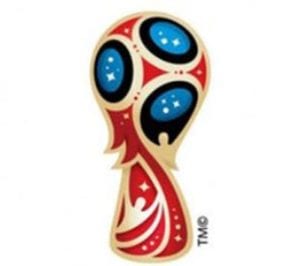 The World Cup is run by the head of world football, FIFA. It’s undisputedly the pinnacle of the international football arena and has been running since 1930, making it one of the oldest international tournaments in the world as well. The tournament runs every 4 years and the hosts are decided by a voting panel from FIFA after what is usually a long and arduous bidding process from each country.
The World Cup is run by the head of world football, FIFA. It’s undisputedly the pinnacle of the international football arena and has been running since 1930, making it one of the oldest international tournaments in the world as well. The tournament runs every 4 years and the hosts are decided by a voting panel from FIFA after what is usually a long and arduous bidding process from each country.
The tournament proper includes 32 teams that each have to go through a qualifying phase to get into the group stage. The only exceptions to the qualifying process are the tournament hosts, who gain automatic entry. There are currently six FIFA continental zones that can qualify which are Africa, Asian, North and Central America and Caribbean, South America, Oceania, and Europe. The stature of each zone within FIFA will be the deciding factor as to how many qualifying spots each zone recieves. This ensures that only the best teams end up competing.
Once into the group stage, there are 8 groups of 4 teams and these are decided by a random, though seeded, draw – a bit like a lottery. The top 2 teams from each group will qualify for the knockout stages and work through the last 16, quarterfinal stage, semi-final stage, and then the final itself. The 2 losers from the semi final stage will also play off in a 3rd/4th place eliminator.
Brazil are the most decorated country at the World Cup with 5 wins in total, with Germany and Italy in joint 2nd place with 4 wins apiece. Miroslav Klose of Germany is the all-time top scorer with 16 World Cup goals, whilst Brazil’s Mario Zagallo and Germany’s Franz Beckenbauer are the only two people to have won the World Cup as a player and a manager.
FA Cup
 First held in 1871, the FA Cup is the oldest cup competition in the game and is still flourishing to this day. The competition is unique in that it allows teams from all 10 top tiers of English football to qualify and compete against each other, making for some unlikely face offs. Often people mention the ‘magic’ of the FA Cup, which is essentially in reference to seeing smaller clubs overachieve and beat teams that are much bigger, stronger, and richer than they are – Wrexham beating Arsenal 2-1 in the third round in 1992 is a prime example.
First held in 1871, the FA Cup is the oldest cup competition in the game and is still flourishing to this day. The competition is unique in that it allows teams from all 10 top tiers of English football to qualify and compete against each other, making for some unlikely face offs. Often people mention the ‘magic’ of the FA Cup, which is essentially in reference to seeing smaller clubs overachieve and beat teams that are much bigger, stronger, and richer than they are – Wrexham beating Arsenal 2-1 in the third round in 1992 is a prime example.
The FA Cup starts off very early in the season around August, with teams from the very lowest leagues in England competing to get into the cup round proper. Once the first round begins in November, we then start to see the introduction of higher ranked teams such as League 1 and League 2. It’s not until the third round where the Premier League and Championship teams are added to the draw and this is where things start to spice up a little.
You see, there are no seeds in the FA Cup and every round is drawn out of a hat. This means that the smallest team could get drawn against the biggest team, which in itself could guarantee a smaller clubs financial safety in gate receipts alone. The tournament works through knockout stages and from the semi-final onwards games stop being played at the home ground of the first team drawn, to being played at Wembley Stadium; this is also where the final will take place. The winner of the FA Cup also gets automatic entry to the Europa League.
Manchester United and Arsenal are the two most successful teams in the history of the FA Cup with 12 wins apiece. Ashley Cole is the most successful player, winning on 7 separate occasions for both Arsenal and Chelsea.
Europa League
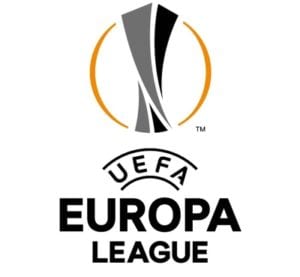 The Europa League has been about since 1971, but back then was commonly known as the UEFA Cup. In 2009, to try and increase the exposure of the competition, a major re-brand saw it re-named the Europa League. It’s widely regarded as Europe’s second-string elite event behind the Champions League but is still a more than credible trophy to win, with some of the biggest names across Europe vying for the title each season.
The Europa League has been about since 1971, but back then was commonly known as the UEFA Cup. In 2009, to try and increase the exposure of the competition, a major re-brand saw it re-named the Europa League. It’s widely regarded as Europe’s second-string elite event behind the Champions League but is still a more than credible trophy to win, with some of the biggest names across Europe vying for the title each season.
The tournament actually kicks off with 160 teams from dozens of European leagues. Most of these go through qualifying stages before being whittled down to the final 48 teams who enter the group stage. There are 12 groups in total and each team in the group will play the others twice. The top two teams from each group will then qualify to the last 32, along with 8 teams dropping down from the Champions League.
The final 32 teams all play a straight knockout stage, where each team plays once at home and then once away, before combining their aggregate score. If the scores are the same then it goes to away goals and if these too are equal then extra time and penalties will decide the winner.
Sevilla are the most successful team in the Europa League with 5 wins from 2006 through to 2016. They are also the first and only team to have won the tournament three times in a row from 2014 to 2016. No player has scored more goals than Henrik Larsson from Sweden, with 40 goals from just 56 games (teams included Feyenoord, Celtic, and Helsingborg), giving him a goals to game ratio of 0.78.
Football Blogs
- The Disgrace of Gijón: How Germany & Austria Colluded to Progress in the World Cup
- Why Do Americans Call Football “Soccer”?
- Are the England Lionesses Better Than the Men’s Football Team?
- Why Don't Spot the Ball Competitions Use the Actual Location of the Ball?
- What Are the Island Games in Football?
- How Would a Premier League All Star Game Work?
- Why Does Everyone Hate Referees?
- Worst Performances by a World Cup Host
- Did You Know: Football Players Can Be Sent Off BEFORE Kick Off
- Football Goalkeeper Rules: 6 Things You Might Not Know About Goalies
- Football Referee Bias: Do They Support a Team & Can They Bet on a Match?
- Meet the Net Firing Drones That Will Protect Football Stadiums in the World Cup
- Premier League Relegation Shocks: Who Are the Biggest Teams to Be Relegated?
- Yo-Yo Teams in the Premier League: Which Football Clubs Just Can't Stay Up?
- How Are the Hosts Chosen For the World Cup & Euros?
- Worst Hosting Bids for the World Cup & Euros
- Paul the World Cup Predicting Octopus
- Bitcoin Investor Peter McCormack Purchases Bedford FC
- There's a New Crypto NFT Fantasy Football League, But Is It Gambling?
- The Rise of Crypto Currency Sponsorship in Football
- Footballers in Prison: Which Players Have Spent Time Behind Bars
- What Was the Bosman Ruling & Why Did It Change Football Forever?
- Why Are There Separate Football Leagues for England, Scotland & Wales?
- What Are Fan Tokens? The Football Clubs Embracing Crypto
- What Was the Rous Cup? A Look at England & Scotland's Quirky Football Competition
- Who Are BK8 & Why Did Norwich City End Their Sponsorship Deal After Just Three Days?
- Gary Lineker's Career: From Footballer to Gameshow Host
- What Are Fifa Ranking Points & How Are They Calculated?
- Which Countries Have the Worst Record at the Euros?
- Which Players Have Scored Own Goals at the Euros?
- What Is the British Home Championship & Who Won It the Most?
- What Are the Home Nations in Football?
- Who Are the Premier League Big 6?
- European Super League: The Breakaway Tournament That Fell Flat on Its Face
- What Happened to Football Index?
- Home Nations Performance at the World Cup
- Home Nations Performance at the Euros
- The Football Clubs That Have Gone Bust
- The Dominance of Gambling Sites in Football Shirt Sponsorship
- Everything You Ever Needed to Know About Spot the Ball Competitions
- The Gender Gap in Football: The Stark Pay Divide Between Men & Women
- Football's Gambling Problem: The Players Banned or Fined for Betting